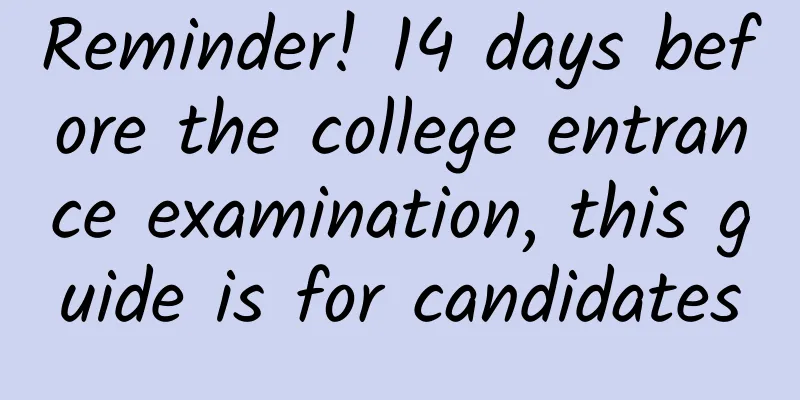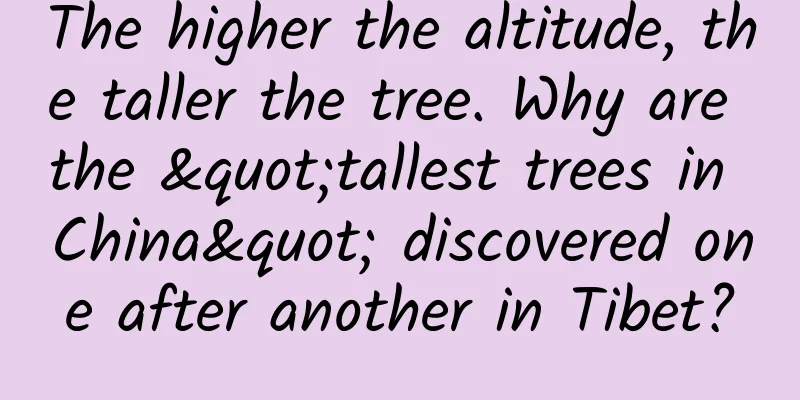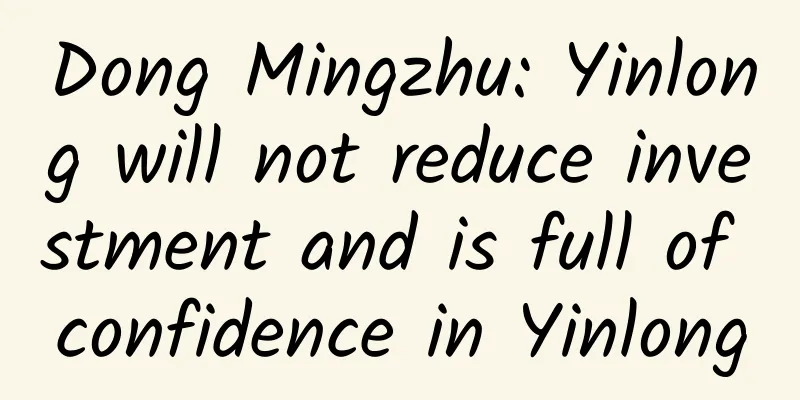"Only letting children learn Mathematical Olympiads will not cultivate them into mathematical masters"

|
27-year-old solves top math problems Won the world's highest honor in mathematics at the age of 33 He is determined to make China a strong country in mathematics He is Shing-Tung Yau On April 20, Tsinghua University announced Shing-Tung Yau retires from Harvard University Full-time employment at Tsinghua University (Photo source: Xinhuanet) When studying mathematics What is more important than talent? Children get high scores in Mathematical Olympiad Does it mean that there is progress in mathematics? How can China become a strong country in mathematics? Recently, CCTV reporter Lu Jian interviewed Qiu Chengtong ↓↓↓ He is straightforward A lifelong love of mathematics In 1949, Shing-Tung Yau was born in Shantou, Guangdong, and moved to Hong Kong with his parents in the same year. At the age of 17, Shing-Tung Yau was admitted to the Department of Mathematics of the Chinese University of Hong Kong, and began his mathematical journey. Because of his excellent academic performance, the 20-year-old Shing-Tung Yau completed his studies ahead of schedule and was recommended to study at the University of California, Berkeley, where he received the guidance of the mathematics master Shiing-Shen Chern. In 1976, at the age of 27, Qiu Chengtong successfully solved the top mathematical problem "Calabi Conjecture", and was awarded the "Nobel Prize" in mathematics - the Fields Medal in 1982. After studying under Shiing-Shen Chern, he gave Shing-Tung Yau a copy of his book Complex Manifolds, and wrote on the title page, "I am sixty years old, and there are people who can carry on my legacy. I hope we can work together." In 1978, Shiing-Shen Chern hoped that Shing-Tung Yau would succeed him at Berkeley, but Yau found that he could not do his best work in the learning environment at Berkeley, so he decided to return to Stanford. In this matter, Yau's integrity can be seen. Building a mathematics talent system He is determined to make China a strong country in mathematics In 1979, Qiu Chengtong visited China for the first time at the invitation of Hua Luogeng, then director of the Institute of Mathematics of the Chinese Academy of Sciences. Hua Luogeng once commented that Qiu Chengtong was "strong in patriotism, loyal and frank". In Qiu Chengtong's autobiography, we can see the following passage: When I first set foot in China, my heart was overwhelmed. I couldn't help but bend down and touch the soil on the ground, as if I wanted to establish a connection with the place where my parents grew up, and I did so afterwards. After that, Shing-Tung Yau traveled back and forth between China and the United States and began to build a system to train Chinese mathematical talents. Growing up in Hong Kong, Shing-Tung Yau deeply felt the gap between China and foreign countries at that time. In Yau's view, "If China wants to become an economic power, it must first become a scientific and technological power, and mathematics is the mother of science. Only when China becomes a mathematical power can it become a scientific and technological power." Qiu Chengtong said frankly that he has the ability to promote the development of basic mathematical research in China. He hopes to cultivate people with temperament and cultural accomplishment for the Chinese mathematical community, which is also a necessary condition for becoming a mathematical master. 8 years, 800 students He wants to train people who can change the world of mathematics In 2021, the "Qiu Chengtong Mathematical Science Leadership Talent Training Program" was launched, and the first batch of 69 students were selected from 3,500 students. In the same year, the "Qiuzhen Academy" was officially established with the mission of ensuring the "Mathematical Leadership Program". It plans to recruit 100 people each year and complete the goal of training 800 students in 8 years. In the "Qiushen Academy", students have to go through a "3+2+3" program for a total of 8 years of study: 3 years to lay the foundation, 2 years to explore research, and the last 3 years to complete the doctorate. Qiu Chengtong believes that "if students do not spend 8 years of hard work, they will not be able to reach the level of research." Qiu Chengtong said that from Newton to Einstein, seven or eight scientists can change the entire scientific field, and the same is true for mathematics. There are no more than 100 people in the world who have brought great changes to the mathematical world. Qiu Chengtong hopes to find someone among these 800 students who can change the entire Chinese mathematics and even the world's mathematics. Undoubtedly, students who can enter the "Qiushen Academy" are extremely talented. However, Qiu Chengtong believes that in addition to talent, what is more important is their basic cultivation and their interest and passion in learning. "They should dare to take paths that others have not taken, ask questions that others have not asked, and feel that they are born to solve these problems." Mathematical Olympiad exams cannot produce masters “Young people need to forge their own path” Many Chinese parents let their children learn Olympiad mathematics. Qiu Chengtong said that getting the first place in the Olympiad mathematics does not necessarily mean that one has made progress in mathematics. The Olympiad mathematics is only a very small part of mathematics. There is a large part of mathematics that the Olympiad mathematics does not cover. Talking about the current gap in Chinese mathematics, Qiu Chengtong said that if parents and teachers just let their children do exercises and take Olympiad exams, hoping that they can enter a top school, they will never become masters. "We train young people, hoping that they can not only solve big problems, but also find their own way." “The current situation of Chinese mathematics A great time for development” Qiu Chengtong said that now is a great time for the development of mathematics in China: "Many people have begun to realize that the United States is not a paradise, and many international students are willing to consider returning to China. Now the best schools in the world are competing for the best mathematicians and the best students." Qiu Chengtong believes that cultivating first-class students depends on first-class scholars. Now, we are systematically and purposefully introducing world-class masters and cultivating world-class scholars. "Frankly speaking, our good teachers and students are no worse than those of Harvard University." In April this year, on the first anniversary of the establishment of the "Qiuzhen Academy" at Tsinghua University, Qiu Chengtong officially retired from Harvard University and was employed full-time by Tsinghua University. For many years, he has been looking for a place to settle down physically and mentally, and is now gradually turning to China. He said, "Ancient Chinese poetry talks about 'birds flying back to their hometowns'. When I was 70, I always wanted to see what my hometown looked like." Editor-in-charge: Ai Jiumei Source: CCTV News Client |
<<: Why don’t we see buttock injections anymore, as we used to do when we were kids?
>>: In reality, how does technology change our lives?
Recommend
China Automobile Dealers Association: Weekly analysis of the auto market from May 1 to May 8, 2022
1. Overview of the auto market this week From May...
So ugly! So smelly! You read that right, I'm talking about orchids
Everyone is familiar with orchids, such as this o...
What operating system is safe for the military?
In the first half of this year, a document from t...
A brief talk about user operations, my AARRR model!
1. Start by reconstructing the AARRR model After ...
What does the "Guang" in Guangdong and Guangxi refer to?
We all know that the "He" in Henan and ...
Programmer career change: Lightspeed entry product manager (product manager course worth 6999)
Resource introduction of the programmer-turned-ca...
Electric mask with 360-degree droplet protection
Recently, the National Development and Reform Com...
Is it better to put food in the refrigerator when it is cold, or to put it in the refrigerator while it is hot? Here is the answer
Expert of this article: Dou Pan, deputy director ...
Planning introduction: numerical design starts from these three aspects
[[150172]] Numerical design is actually born for ...
Fission is complete, how to do refined user retention work
At the end of the previous article "There se...
The Shanghai court accepted the appeal of Wang Zhenhua, the defendants Wang Zhenhua and Zhou Yanfen molested children!
The official WeChat account of the Shanghai Secon...
K12 online education user stratification operation strategy!
In user operations , more and more products have ...
How can farmers no longer rely on the weather for their livelihood? Let agriculture have some "climate resilience"
Super typhoons have frequently landed this year. ...
How to build a good live broadcast room?
I believe everyone is already familiar with the c...
All copywriting cannot escape these six doors
Why can’t I write a copy no matter how hard I try...









